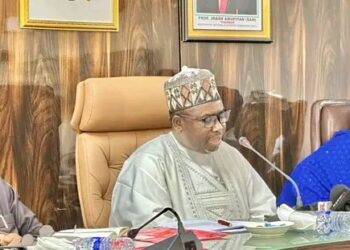… Bishop Kukah is pro-chancellor
… Tinubu appoints varsity’s principal officers
Prof Williams Barnabas Qurix has emerged as the pioneer Vice Chancellor of the Federal University of Applied Sciences, Kachia, Kaduna State.
President Bola Tinubu made the appointment on Monday, appointing Bishop Matthew Kukah, the Catholic Bishop of Sokoto Diocese, as the Pro-Chancellor and Chairman of the Governing Council.
In a statement issued by President Bola Ahmed Tinubu’s spokesman, Bayo Onanuga, he said he appointed the university’s principal officers, including Prof. Qurix Williams Barnabas as Vice Chancellor, Sanusi Gambo Adamu as Registrar, Ibrahim Dalhat as bursar, and Prof Daniel Abubakar as university Librarian, because of their track records.
President Tinubu also approved the appointment of Mr Thomas Etuh, representing the North Central, Chief Fabian Nwaora (South East), Prof Femi Taiwo (South West) and Zarah Bukar (North East) as members of the university’s Governing Council.
All the appointees were carefully selected based on their distinguished careers, leadership experience, and dedication to advancing education in Nigeria.
President Tinubu implored them to use their collective expertise to position the university as a hub for academic excellence and research, aligning with the administration’s Renewed Hope Agenda.
President Tinubu urged the newly appointed officers to provide visionary leadership and lay a solid foundation for the university’s growth as it prepares to admit its first cohort of students in September 2025.
The Federal University of Applied Sciences was formerly known as Nok University. It was renamed after the federal government took over its assets.









